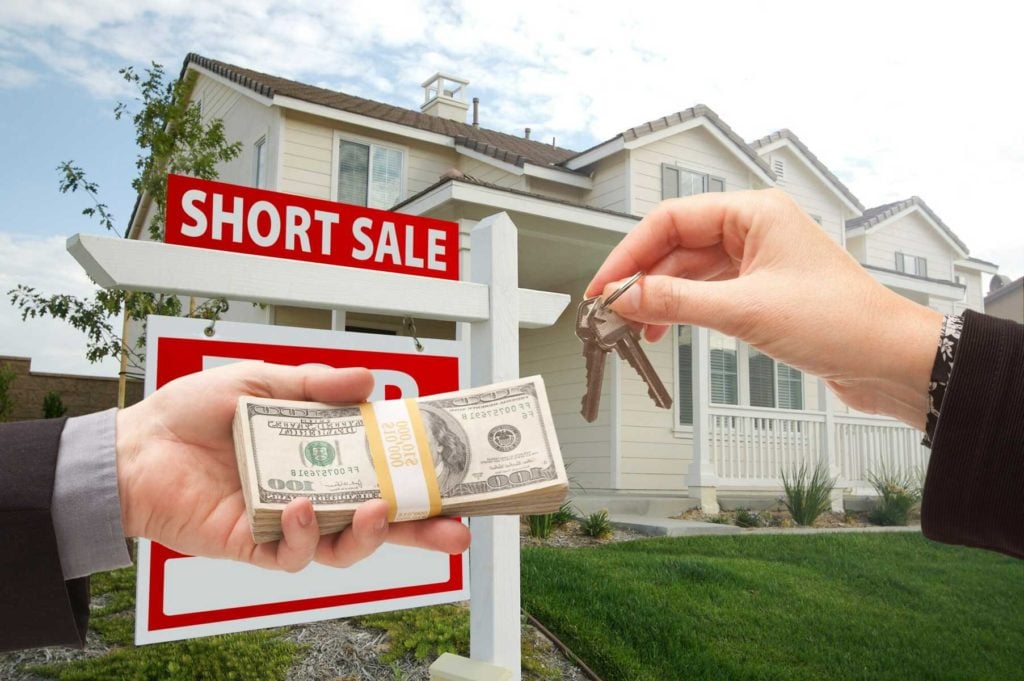More than 5.6 million homes were sold in the United States alone in 2020. Many more homes have been sold since then and some have even gone through short sales. But what is a short sale exactly, and how is it any different than a regular sale, bankruptcy, or foreclosure?
How does a short sale affect you as a homeowner? Are there any benefits of short sales compared to other options? Keep reading and learn more about whether or not you should consider a short sale when selling a home.

Short sales are not as common as they used to be, but some people may still decide to go through the short sale process. A short sale is a particular situation in which the lender of a mortgage decides to accept a mortgage payoff that is significantly less than the amount owed by the borrower. This is done to allow a homeowner to sell their house if they need funds.
But what about the remaining balance of the loan? As for the remainder, the mortgage lender will usually forgive it so the borrower doesn't need to pay it. Short sales are not very common because they are not particularly beneficial for anyone involved.
Even the homeowner will not benefit as much when selling the house as usual. However, sometimes selling the home, as usual, is not possible. This is often the case for those who need money right away and can't afford to wait for their house to sell.
For example, suppose that a homeowner's house has lost considerable value. This may happen for a variety of reasons, such as the decline of the neighborhood or the need for large repairs on the house. Whatever the case, if the price of the house declines, the homeowner may end up with a mortgage that is far more than the house is even worth.
This, of course, creates a very large problem for the homeowner. Selling the house, as usual, would not solve the mortgage problem since the house is not worth enough to cover the cost of the mortgage. This is why putting the house through the short sale process can help.
As mentioned before, it involves helping the owner of the house by forgiving a certain amount of the mortgage. The big downside of a short sale is that it does not provide you with any extra money as a normal sale would. Instead, the majority of the money will go towards paying off your mortgage.
After the short sale, you might find it difficult to find another place to live unless you have already planned ahead. And yet, short sales are often preferred to the other option, which is foreclosure. But what is the difference between a short sale and foreclosure and what makes a foreclosure so much worse than a short sale?
Most people prefer to go through the short sale process rather than go through foreclosure because foreclosures are terrible for your credit score. If you decide to foreclose on your house, you will find that your credit score will plummet.
Once your credit score goes down so much, you will find it quite difficult to accomplish different tasks that involve your finances and credit history, such as opening new bank accounts, opening credit cards, getting loans, and even getting a new apartment.
Also, in the case of a foreclosure, the homeowner does not have much control over the situation. Instead, the lender takes back the property and tries to sell it for as much as possible to regain the cost of the mortgage. This can leave the ex-homeowner in a terrible financial situation that is hard to bounce back from.
Keep in mind that a short sale will also damage your credit score to a certain extent. However, it will not damage it nearly as much as a foreclosure will. This is another reason why many people prefer to go through the short sale process rather than a foreclosure.
Even if your credit score drops from a short sale, it should still be good enough to allow you to get an apartment or open a bank account. If you're wondering whether or not you should go through with a short sale, it will all depend on your individual financial situation.
For example, if you know that the value of your home is decreasing and you know you won't be able to pay off your mortgage, a short sale may be a good option for you, especially in the long term. In some cases, the decision might already be made for you.
Keep in mind that if you do decide to go about refinancing your house with a short sale, the process may take some time. There are some cases of short sales taking several months to complete, while others may only take a few weeks. It is usually best to hire a real estate agent to help you with your short sale so the process will progress faster and more efficiently.
Going through with a short sale is a hard decision to make, but sometimes, it is necessary. A short sale is not as bad as a foreclosure because it will not damage your credit score as severely. It involves the mortgage lender allowing the borrower to pay a certain amount of the mortgage while forgiving the rest.
To learn more about real estate, don't hesitate to click here.